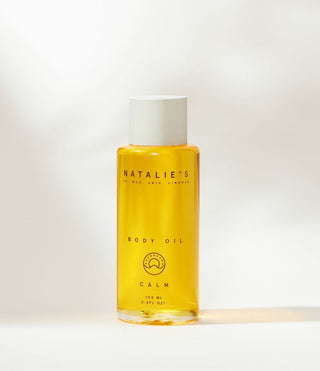This blog article provides valuable insights on the intricate relationship between stress and skin health. Learn how stress can lead to skin conditions like acne, eczema, and hair loss. Explore effective management strategies, from meditation to skincare, and understand the factors that worsen stress effects on your skin. By the end of this article, you'll be equipped to protect your skin's radiance in the face of life's inevitable stressors.
Table of Contents
1. Understanding the stress-skin connection
The stress-skin connection is a fascinating and intricate relationship between our emotional well-being and the health of our skin. While it might seem like an abstract concept, numerous scientific studies have uncovered concrete evidence of how stress can significantly impact the skin's condition. This connection is not merely anecdotal; it's deeply rooted in our physiological responses to stress and can manifest in various skin conditions, from acne to eczema and beyond.
When we experience stress, our bodies undergo a complex physiological response. Key hormones, such as cortisol, are released as part of the body's "fight or flight" reaction to stressors. This hormonal surge can lead to a range of consequences for the skin. For instance, cortisol can stimulate the sebaceous glands to produce more sebum, an oily substance. An excess of sebum can clog pores and become a breeding ground for acne.
Furthermore, individuals with naturally oily skin are more vulnerable to stress-induced acne, creating a dynamic where stress hormones and skin type interact to exacerbate skin issues. However, stress doesn't stop at acne; it can lead to a cascade of skin reactions, including hives, rashes, hair loss, and more.
The stress-skin connection is not a one-size-fits-all scenario. People react differently to stress, and the types and severity of skin conditions triggered by stress can vary widely. Whether you're a young adult struggling with acne or someone dealing with hair loss, understanding this connection is crucial for effective management.
Recognizing the science behind the stress-skin connection can empower us to take proactive steps to manage stress effectively and minimize its impact on our skin. This understanding enables us to make informed choices about lifestyle, skincare, and coping strategies to regain and maintain our skin's natural radiance.
In the following sections, we will explore the specific skin conditions linked to stress, delve into strategies for managing stressed-out skin, and discuss how stress can affect individuals differently.
2. Factors that worsen stress effects on skin
While the stress-skin connection is well-established, it's essential to recognize that several factors can exacerbate the impact of stress on our skin. These factors can heighten the vulnerability of our skin to stress-related conditions and intensify the skin's reactions to elevated stress levels.
-
Genetics: Our genetic makeup plays a significant role in determining how our skin responds to stress. Some individuals may be genetically predisposed to certain skin conditions like acne, eczema, or psoriasis. When stress is added to this genetic predisposition, the likelihood of developing these conditions increases.
-
Lifestyle: Unhealthy lifestyle choices, such as poor diet, lack of exercise, and inadequate sleep, can worsen the effects of stress on the skin. A lack of essential nutrients, insufficient hydration, and sedentary habits can impair the skin's natural ability to recover from stress-induced damage.
-
Environmental Factors: Our skin is exposed to various environmental stressors, such as pollution, harsh weather, and UV radiation. When coupled with psychological stress, these external factors can contribute to skin irritation, premature aging, and exacerbate conditions like rosacea or sunburn.
-
Hormonal Changes: Hormonal fluctuations, such as those during menstruation, pregnancy, or menopause, can intensify the skin's sensitivity to stress. Hormones like cortisol, as well as sex hormones, can interact in complex ways, leading to breakouts and skin reactions.
-
Medications: Some medications have skin-related side effects that can be triggered or worsened by stress. It's essential to be aware of how specific medications may interact with stress hormones and affect the skin.
-
Mental Health: Chronic stress can lead to more severe mental health conditions like anxiety and depression. These conditions can further intensify skin reactions, creating a challenging cycle where stress exacerbates skin issues, which, in turn, increase stress levels.
-
Age: The skin's ability to recover and regenerate naturally decreases with age. Therefore, older individuals may find that the effects of stress on their skin are more pronounced, leading to issues like fine lines, wrinkles, and slower healing.
Understanding these factors is crucial because it allows individuals to take a holistic approach to managing stress and its impact on the skin. By addressing lifestyle, environment, genetics, and overall health, one can better protect their skin from stress-related conditions and maintain a healthy, radiant complexion. Moreover, recognizing the interplay between these factors empowers individuals to make informed choices in both skincare and life choices, ultimately mitigating the adverse effects of stress on their skin.
3. Identifying Skin Conditions Related to Stress
Stress can manifest itself in various ways on our skin, often as a result of complex physiological processes triggered by our body's stress response. Identifying these stress-related skin conditions is essential to address them effectively and take steps toward healthier, more resilient skin.
Here are some common skin conditions closely linked to stress:
-
Acne: Stress can lead to the overproduction of stress hormones, including cortisol. Elevated cortisol levels stimulate sebaceous glands to produce more oil, which can clog pores and lead to acne breakouts, especially in individuals with already oily skin.
-
Eczema: Stress can weaken the skin's natural barrier, making it more susceptible to allergens and irritants. This can trigger or exacerbate conditions like eczema, characterized by red, itchy, and inflamed skin.
-
Psoriasis: Chronic stress can worsen psoriasis symptoms. This autoimmune condition causes skin cells to multiply rapidly, resulting in red, scaly patches. Stress can exacerbate the inflammatory response, making psoriasis more severe.
-
Rosacea: Stress can trigger flushing, which is a common symptom of rosacea. Additionally, the release of stress hormones can lead to inflammation, potentially worsening rosacea's redness and visible blood vessels on the face.
-
Hair Loss: Stress can lead to a type of hair loss known as telogen effluvium. This occurs when the hair's growth cycle is disrupted, causing hair to fall out more rapidly than usual.
-
Hives and Rashes: Stress can cause the release of histamines in the body, leading to hives and other allergic skin reactions. Stress-induced rashes can range from minor redness to more severe and widespread skin eruptions.
Identifying these conditions can be challenging because stress can sometimes mimic other dermatological problems. However, the key is often the correlation between the onset or worsening of these skin conditions and significant periods of stress or life events. A dermatologist can provide a definitive diagnosis and recommend appropriate treatment options.
4. Managing Stress and Its Effects on the Skin
Managing stress-related skin issues involves not only addressing the skin's external symptoms but also addressing the underlying stress. To manage stress and its effects on the skin, a multifaceted approach is required:
-
Meditation and Mindfulness: Engaging in regular meditation and mindfulness practices has been shown to reduce the levels of stress-related hormones called catecholamines. By calming the mind and reducing stress, these practices can have a positive impact on overall well-being, including skin health.
-
Holistic Lifestyle: Adopting a holistic approach to life, which includes regular exercise and a balanced diet, can contribute to stress hormone regulation. Physical activity releases endorphins, which act as natural stress relievers. Additionally, maintaining a well-balanced diet ensures that the body receives essential nutrients to cope with stress effectively.
-
Hydration and Exercise: Adequate hydration and regular exercise are integral components of managing stress and its skin-related consequences. Staying hydrated supports the skin's natural functions, while exercise aids in stress hormone regulation.
-
Choosing the Right Skincare: When dealing with stressed skin, it's essential to select non-comedogenic and gentle skincare products. These formulations are less likely to clog pores or exacerbate skin conditions. For instance, products enriched with organic, non-comedogenic oils, such as Natalie's Calm Body Oil, provide essential fatty acids, minerals, and antioxidants to soothe and nourish the skin. These can be particularly beneficial for skin subjected to stressors like sun exposure, waxing, or epilation.
To manage stress-related skin issues effectively, it's not only about addressing the external symptoms but also understanding and addressing the underlying stress. Learning to cope with stress through time management, financial planning, or relaxation techniques can help mitigate its skin effects. Furthermore, seeking support from medical professionals when skin conditions cause mental distress is a crucial step in achieving balance and well-being.
5. In conclusion: don't rush the process
In conclusion, managing stress and its effects on the skin is a holistic approach that encompasses both inner and outer well-being. By addressing stress through healthy lifestyle choices and choosing the right skincare products, we can promote radiant, healthy skin and a happier, less stressed life. Be sure to be patient; it can take a few different treatments before you find one that works for your skin.


